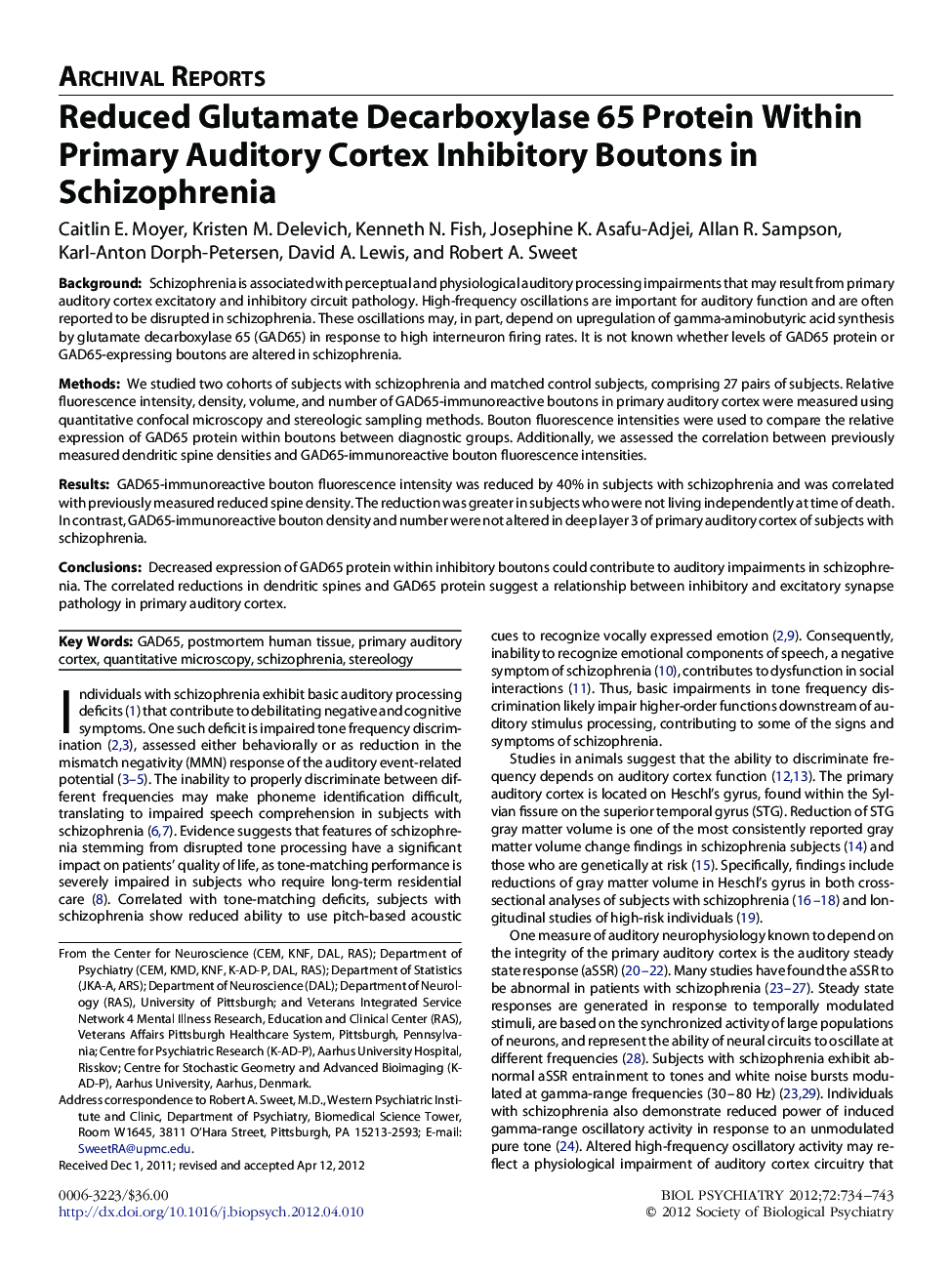| Article ID | Journal | Published Year | Pages | File Type |
|---|---|---|---|---|
| 4177800 | Biological Psychiatry | 2012 | 10 Pages |
BackgroundSchizophrenia is associated with perceptual and physiological auditory processing impairments that may result from primary auditory cortex excitatory and inhibitory circuit pathology. High-frequency oscillations are important for auditory function and are often reported to be disrupted in schizophrenia. These oscillations may, in part, depend on upregulation of gamma-aminobutyric acid synthesis by glutamate decarboxylase 65 (GAD65) in response to high interneuron firing rates. It is not known whether levels of GAD65 protein or GAD65-expressing boutons are altered in schizophrenia.MethodsWe studied two cohorts of subjects with schizophrenia and matched control subjects, comprising 27 pairs of subjects. Relative fluorescence intensity, density, volume, and number of GAD65-immunoreactive boutons in primary auditory cortex were measured using quantitative confocal microscopy and stereologic sampling methods. Bouton fluorescence intensities were used to compare the relative expression of GAD65 protein within boutons between diagnostic groups. Additionally, we assessed the correlation between previously measured dendritic spine densities and GAD65-immunoreactive bouton fluorescence intensities.ResultsGAD65-immunoreactive bouton fluorescence intensity was reduced by 40% in subjects with schizophrenia and was correlated with previously measured reduced spine density. The reduction was greater in subjects who were not living independently at time of death. In contrast, GAD65-immunoreactive bouton density and number were not altered in deep layer 3 of primary auditory cortex of subjects with schizophrenia.ConclusionsDecreased expression of GAD65 protein within inhibitory boutons could contribute to auditory impairments in schizophrenia. The correlated reductions in dendritic spines and GAD65 protein suggest a relationship between inhibitory and excitatory synapse pathology in primary auditory cortex.
